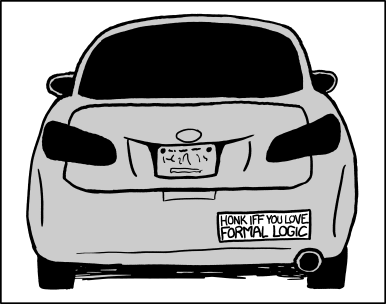-
• #227
There will be somewhere. Just seems sloppy not including rise in cycling trips in the crash stats
-
• #228
Well it depends which stat you're trying to show. In this case no. They are only trying to show the increase in total number of accidents. There is probably no useful measure in number of trips by bike, though I'm sure an estimate could be done. This measure would probably not be accurate and open to lots of interpretation. This might be the reason why they don't show any such number.
If the number of trips is available then the increase, or decrease, in cycle casualties per certain number of trips could be calculated. This not what is being shown.
-
• #229
It depends on the purpose. It's good state absolute and relative data as both have their benefits. For example, I'd imagine that only the absolute number of casualties matters to the emergency services.
-
• #230
Ah we all said the same thing at the same time!
-
• #231
It's always good to compare proofs
-
• #232
It depends on the purpose. It's good state absolute and relative data as both have their benefits. For example, I'd imagine that only the absolute number of casualties matters to the emergency services.
...and relative data would matter to road safety people. Perhaps mitigate against sloppy reporting with headlines like
DfT stats show that road danger decreasing for all but cyclists -
• #233
Good point.
-
• #234
But statisticians are all about error bars. Any stat on number of bike trips would have a huge error and no one would touch it.
-
• #235
...and relative data would matter to road safety people. Perhaps mitigate against sloppy reporting with headlines like
DfT stats show that road danger decreasing for all but cycliststrue, good statistics is all about being fit for purpose. the stat in the report definitely doesn't suggest cycling is getting more dangerous. far more likely to be due to increased number of trips by bike.
but it's a valid stat provided it's presented properly
-
• #236
yesterday was 21/02/20/12 palindromic date
just saying like
-
• #237
Hello number people. I gotz a question: I have a bunch of lattitudes that I want to plot on a point graph, they range from 51.91673279 to 51.40715408. The problem I'm having is that the distrubution is so narrow that all the points are at the same height.
I've used Arduino before which has a map function where one set of nunmbers are mapped onto another set ,but I don't know how to do this with just an equasion in excel. If I can map this range of numbers (between min and max) onto, say, 0 to 100, I'd get a much more dynamic splatter of points.
I have no numbers in my head, can someone with brain-digits help me out?
-
• #238
When you say a point graph, what are you plotting? If x is latitude what is y?
You just want to normalise the latitudes so that min to max is 0-100? If so then do: dx=(max value - min value)/n, where n=100 in this case. But then you'd have to re input the data.
Would be quicker to use the following in excel: Normalised X value = (Raw X value - X min) / dx
If I understand you correctly
-
• #239
Rad, thanks neu, you fixed it.
I'm plotting lat and long in an illustrator graph. The only issue now if how to reference a single cell, and not have it change when I drag the equation down the column in Exel. Help file might fix it.
Thanks again!
-
• #240
You use $ symbols to do that.
e.g if you reference the cell E9 then use $E$9 in the equation, so when you copy the equation to a whole column they will all use E9
-
• #241
Once again :)
-
• #242
Handy hint: F4 is your friend when writing formulae with dollars in.
Oh, and excel thread is >>>>>>>>>>>>>>>>>
:) -
• #243
Any maths geeks geeky enough to hitting this next week?*
http://www.ucl.ac.uk/math/BAMC-2012/index.htm
*Just me then I guess....
-
• #244
An old lecturer of mine is starting the QM session, she's a great teacher. That said I will not be attending.
-
• #245

-
• #246
The best episode of the bbc history of maths series is available at the mo. It's the one where it stops being slow and boring and goes a bit mental with the 20th century.
This
https://www.bbc.co.uk/iplayer/episode/b00f7zsk/The_Story_of_Maths_To_Infinity_and_Beyond/ -
• #247
http://www.bbc.co.uk/news/technology-17771962
Turings code breaking notes released by GCHQ
-
• #248
i work in mayfair right by the royal academy of arts, which has statues of many great minds set into the wall. on my lunch break i chanced to overhear an american tourist exclaim in a loud voice "awesome, there's Leibnitz, now you're talking".
it made me very happy. he was stood in a spot where most american tourists would be saying "hey there's abercombie"
-
• #249
http://⇬⇵.⇒.ws
-
• #250
As Professor Albert Bartlett (Emeritus Professor of Physics, University of Boulder) says, "The greatest shortcoming of the human race is our inability to understand the exponential function."
 skydancer
skydancer user8746
user8746 neu
neu dicki
dicki dbr
dbr Olly398
Olly398
Is there data for the estimated rise in cycle journeys for the equivalent periods?